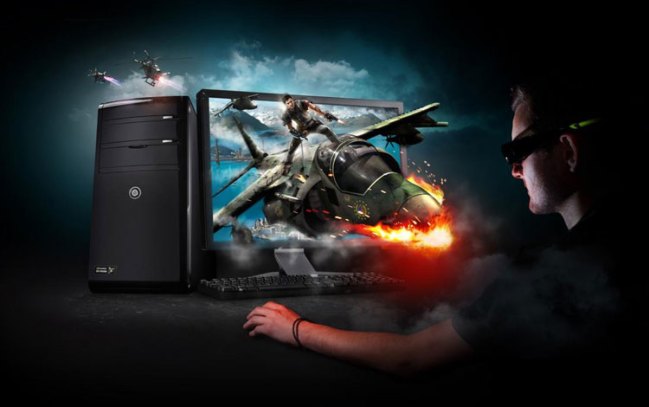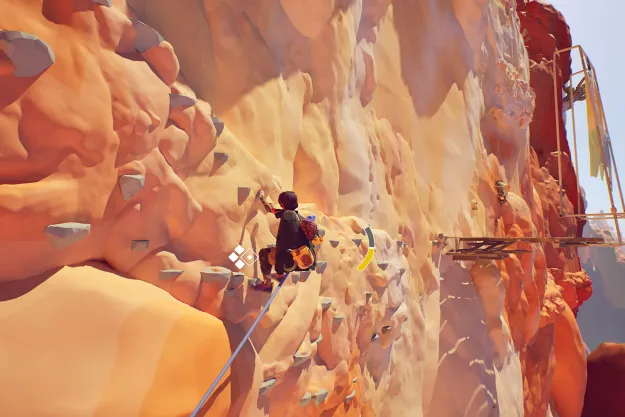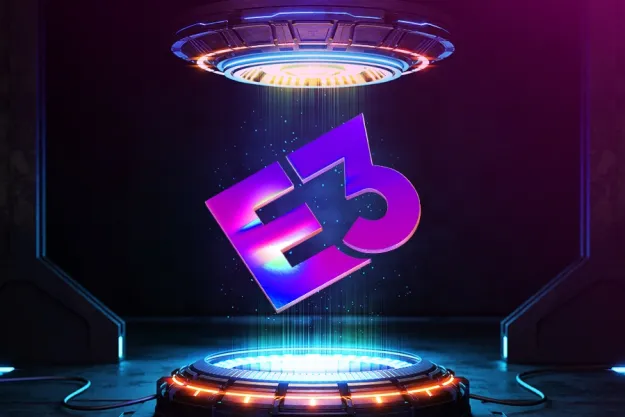
Both Sony and Nintendo are finally talking about their next-generation gaming consoles, and next week’s E3 show promises to reveal even more details. Over the last few months, I’ve been playing with OnLive, which is being built into some of the next-generation of PCs. We’ve seen the social aspects of gaming drift out of MMOs like World of Warcraft into first-person shooters, and most of the game console makers have started exploring the various aspects of community gaming. But where is this all going? With the E3 gaming conference coming up fast; let’s explore the next generation of gaming.
Multi-platform
One of the coolest aspects of OnLive is that you can start a game on any PC, then play on a variety of PCs while retaining your current state of play. In other words, you can start it at home, and on your break, finish it at work. Granted, this doesn’t work with MMOs unless everyone else wants to wait for you, but in linear games where you are working against a storyline, it is a great way to progress. With MMOs, you can enter a game from any PC once you log in and download the client (which can take several hours). OnLive also allows you to at least observe a game on an iPad, but you can’t play it yet, and I’m not aware of any MMOs that allow that yet. Xbox Live has games for Windows 7 Phones, but they are different than those for the Xbox itself. Meanwhile, Sony is allowing some older PlayStation games to work on its upcoming Sony Ericsson phones.
Clearly, vendors are exploring multi-platform gaming, but no one has it right yet. However, you could tweak different aspects of a game to fit varying devices and interfaces, and cause an online game to span devices. That is where I think the industry will eventually head.
For instance, in World of Warcraft you could create new races of characters that would be controlled through the more limited phone, tablet, or TV interfaces, but still participate in large group events while having different missions to complete. You could create new pets that players can level up through the phone or tablet, but then get the benefit of the enhanced pet when playing off the PC, or take over a friend’s pet, giving it more intelligence and purpose (at least we’d hope you’d play better than a NPC). You could allow players to earn gold at a faster pace by taking over the NPCs, allowing them to move more naturally in a game, with controls catered to a smaller device. You could even take over birds and drop in on friends for an in-game chat.
But the point is that with the increasing variety of devices and a rich game environment, people can play together collaboratively just by adjusting aspects of the game to fit the device that is connecting to it.
 Using a phone or tablet as a touch controller
Using a phone or tablet as a touch controller
We are seeing folks like Skifta take your phone or tablet and turn it into a remote control. I expect we’ll have apps that will turn it into a richer game controller as well. You could then reconfigure the screen to address unique aspects of the TV-based game and better shift between tasks. For instance, in Halo, when you took over a Hog or one of the flying machines, the phone or tablet display could show instruments and use its accelerometers to shift to more of a wheel or stick as a control interface. Granted, this would likely require some advancement in touch screens to reduce latency for first-person shooters, but for puzzle games it could be very useful. Clearly, as a controller for existing and upcoming game consoles, the tablets and smartphones would be very powerful today.
3D
3D TVs just haven’t been the hit a lot of analysts expected they would be, largely due to the lack of compelling content and the expense of the 3D glasses. However, Nvidia has shown that 3D works out of the box with many games today, and that it can look pretty stunning. We are already seeing it on some handheld gaming systems, but the real push will likely come from the console makers, who will move beyond HD with the next generation to 3D for the wow factor that will sell new consoles and games. Because games are generally played with one person and never more than two on the same screen, the glasses issue is reduced, and game players buy expensive accessories all the time to enhance their gaming experience. I’m guessing that even Nintendo will want to be on board with that, since it was hurt by missing the HD wave with the Wii.
In-game commerce
Ads have been coming into games for some time, but given more are connected now, why not more opportunities to buy real items in-game? For instance, imagine outfitting your character, then getting an offer of a t-shirt with your character in one of a number of battle poses. Or a decal for your car or something with your gamer tag on it. In racing games, you could be told about deals by a local dealer on cars similar to the one you just drove in game. Others could offer posed pictures of everyone in your guild or group. While you are waiting for a group to form, you could be served advertisements on food, movies that are similar to the game, or offers tied to your profile. If you enabled this ad viewing, you might see a discount on your monthly fees, or on the next game you buy. You can already buy things with real or game money in many games; it is just a small jump to create offers that would be tied to real-world items. Gaming and shopping in one place… hmmm, my wife may like that feature better than I do.
Changes ahead
Gaming is in the process of crossing platforms, trickling into reality through products, and embracing 3D. Where smartphones and tablets become windows into the games, people can engage online from any device at any time, often right where they have left off. Gaming capability is already being built into TVs, and ten years from now kids will likely be asking their parents what a gaming console was and why anyone would need one, making you too feel really old. Can you hardly wait until an NPC comes up and instead of yelling a battle cry, asks you if you want a discount on your next burger? Isn’t progress grand?
Editors' Recommendations
- After Amazon’s Fallout, these games deserve TV adaptations next
- The biggest gaming news of 2023: Insomniac leak, GTA 6 reveal, and more
- E3 is officially dead, as the ESA retires the historic gaming expo
- Every blockbuster reveal from the Xbox leak: new consoles, Bethesda games, and more
- We ranked all the best (and worst) video game system startup sounds



